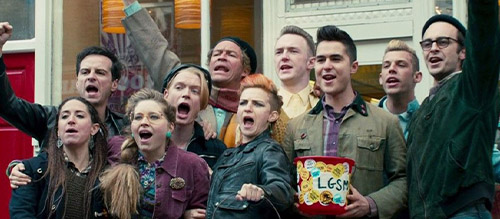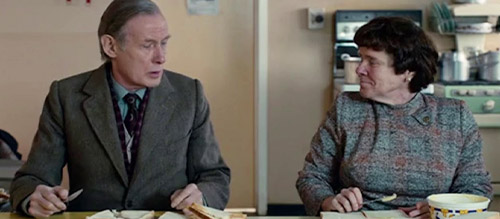5 Reasons Why Pride Is One of the Best Films of the 21st Century
Pride (2014) is one the best films of all time. Fact.
Across just 122 minutes, Matthew Warchus’ film manages to explore the miners’ strike, the gay liberation movement, and the beginning of the AIDS crisis.
Pride is based on the true story of LGSM (Lesbians and Gays Support the Miners), and the group’s relationship with a small Welsh mining town. LGSM was set up in 1984 by Mark Ashton (played here by Ben Schnetzer) and Mike Jackson (Joseph Gilgun), and raised £22,500 for striking miners. Pride is the story of the wholesome meeting of two different worlds.
Below, in this Movie List from The Film Magazine, are 5 reasons why Pride is one of the best films of the 21st Century. Spoilers ahead.
Make sure to follow us on Twitter to make sure you never miss another list like this one.
1. The Blending of Political Agendas
“I support you whoever you are, hand to hand, shoulder to shoulder, as it should be.”
Pride is unashamedly political, and carefully combines two previously unrelated groups – striking miners, and gay and lesbian activists.
The film does not focus too much on negativity, but makes it clear that it is not shying away from the realities of life for marginalised groups. We see Gethin (Andrew Scott) cleaning graffiti from the front window of his bookshop “Gay’s the Word”, as well as the material realities of striking for the miners, such as Dai (Paddy Considine) having his gas and electricity cut off.
Although Mark’s (Ben Schnetzer’s) politics are watered down for the film – he was a member of the Communist Party of Great Britain (a moment touched upon in a bar scene when someone shouts “commie” at him) – Pride has politics at its core; it’s difficult to watch this film and not feel genuine sympathy for the plight of its characters, each being oppressed by forces in government and wider society.
2. A Great Coming Out Scene
A conversation takes place between Cliff (Bill Nighy) and Hefina (Imelda Staunton) as they make sandwiches for the miners. Hefina is telling Cliff off for the indelicate way he is cutting the sandwich. After a few silent moments, Cliff simply says “I’m gay”, to which Hefina replies, “I know”.
You can sense Cliff’s relief at finally being able to say this out loud. He’s a quiet and reserved character, and it brings such joy to finally see Cliff moving someway towards accepting his true self.
This is a sensitive moment, delicately shot. Hefina tells Cliff she has known since 1968, and carries on buttering the bread. As far as coming out scenes go, this is one of the best in cinema, as it is perfect for the journey that we have seen this character go on.
Without the need for fanfare or a parade, Cliff is shown acceptance and love by Hefina. Other coming out scenes should take note.




God I fucking love this film, the blending of politics is sooo important. I even got to meet the original LGSM at The Durham Miner’s Gala